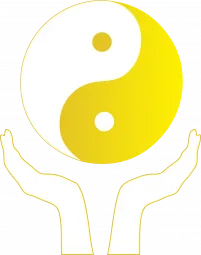Herbal Care
Description
Chinese herbal medicine is a major aspect of traditional Chinese medicine, which focuses on restoring a balance of energy, body, and spirit to maintain health rather than treating a particular disease or medical condition. Thus, you often hear that the focus on Chinese Medicien is to treat the root cause rather than the symptoms.
Chinese herbal formulas are as effective now as they were when first introduced more than 2,000 years ago. Most formulas consist of two to eighteen different types of herbs. Formulas treat a wide variety of symptoms while stimulating the body's natural healing process. Hospital studies giving individualized complex herbal formulas have demonstrated excellent results with patients who fail to respond to conventional pharmaceutical treatments.
Modern techniques can transform formulas into pills, capsules, granules or tinctures to make them easier and more convenient to ingest. Chinese Herbology is considered most safe and effective when prescribed by a qualified practitioner of Oriental Medicine.
How is it promoted for use?
Chinese herbal medicine is not based on mainstream Western concepts of medical diagnosis and treatment. Chinese herbal medicine practitioners attempt to prevent and treat imbalances, such as those caused by external or emotional factors, with complex combinations of herbs, minerals, and plant extracts.
Chinese herbal medicine uses a variety of herbs such as astragalus, ginkgo, ginseng, ginger, and Pericarpium Citri Reticulatae (Orange Peel) in different combinations to restore balance to the body. Herbal blends are there to prevent and treat common cold, digestive disorders, hormone disturbances, infections, breathing disorders, and a vast number of other ailments and diseases. Some practitioners claim herbs have the power to prevent and treat a variety of types of cancer.
One aspect of Chinese herbal medicine aims to restore or strengthen immunity and resistance to disease.
What does it involve?
In China, more than 3,200 herbs and 300 mineral and animal extracts are used in more than 400 different formulas. Herbal formulas may contain 4 to 12 different ingredients, to be taken in the form of teas, powders, pills, tinctures, or syrups. At Prosperity Health Center we don’t use nor provide any animal ingrediants.
Chinese herbal remedies are usually made up of a number of herbs and mineral. Typically, 1 or 2 herbs are included that are said to have the greatest effect on the problem being treated. Other ingredients in the formula are supposed to treat minor aspects of the problem, direct the formula to specific parts of the body, and help the other herbs work better.
With the increase in popularity of herbal medicine, many Chinese herbs are now sold individually and in formulas. In the United States, Chinese herbs and herbal formulas may be purchased in health food stores, some pharmacies, and from herbal medicine practitioners.
Before choosing a mixture of herbs for a patient, the traditional Chinese medicine practitioner will typically ask about symptoms and examine the patient, often focusing on the skin, hair, tongue, eyes, pulse, and voice, in order to detect imbalances in the body.
What is the history behind it?
Native cultures all over the world have traditionally used herbs to maintain health and treat illnesses. Chinese herbal medicine developed as part of Chinese culture from tribal roots. By 200 BC, traditional Chinese medicine was firmly established, and by the first century AD, a listing of medicinal herbs and herbal formulations and their uses had been developed.
